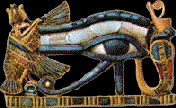It all started with a question about zebra stripes.


This is a pretty common fact in most species. If you examine the placement of their eyes, you can usually determine what their diet consists of. Except one...

Could it be imbeded in genetic codes still to be discovered that evolution is somehow predisposed to the knowledge of certain traits, to appear later in a developing species? Almost too neat, too tidy. But look at us:
We are long-since past the hunter/gatherer stage, we don't need to stalk and kill for food anymore, we do that at the Shop-Rite. Our eyes, however, betray a predator species needing front-focused vision having nothing to do with survival. Or does it?
We're the only species besides the bonobo ape who procreates face to face. You need front-focued eyes to do that, if you're human, because our instinctual need is to gaze at our partner - it enhances the sex act thereby securing a better chance of continuing the species. (Oh Cathy you're so cold about this...) So part of insuring our survival dictates that we be able to see each other. Not all, but part.
Then again: Would we make better drivers if our eyes had better peripheral vision, placed farther apart? Or is it best to keep the narrow focus we now have? Certainly driving for humans determines something of our survival, as does so many of our big-brained inventions. Nevetheless, we're of the belief that more people benefit from our discoveries than not, and when thinking of penicillin I agree. In part. Penicillin also introduced many weak but uncontrollable viruses. But back to the point:
Do we look the way we're "supposed" to, like zebras?
Clothes are the conceit of modesty, another product of the human brain. Then nature steps in to defend evolution and tells us that without clothing we'd freeze and die. Seems to balance out. I think I'm nearing the point:
Does some equation exist in evolution that has a kind of forecast as to what a species will require, far into its future? And if so, how does nature know for certain a species will be successful? I can't imagine any thing or act going to waste in the cool waters of natural selection, so perhaps there exists some factor we'll never understand but still be able to question.
And as long as we question, that's enough for me.















































15 comments:
Well, Cathy, when you believe as I do that God created every creature to be exactly what he designed them to be then it's not hard to imagine that every possiblity over eons was taken into account by an all-knowing God. I dont' think that shrinks the marvel of it all one bit. Such care, such planning! - Barbara
Hmmm!! You answered my ZEBRA question.... thanks!!
Joann
Whatever the questions we still live in a most extraordinary world...Liek teh idea about the Zebra though ..my very favourite wild animal !! Love Sybil..but by the way no two Zebra's stripes are alike ! XX
Yer right Sybil, but to the lion they all look like chaos lol!
Interesting entry Cathy - I love zebras, I would love to have one. I can only say, thank goodness we have the conceit of modesty to wear clothing, otherwise seeing one another naked surely would not insure the continuation of our species...except for some who may be very busy!! ;)
xx
Lisa
Zoologists think that the stripes act as a camouflage mechanism. This is accomplished in several ways. First, the vertical striping helps the zebra hide in grass.
At first glance, this may seem absurd considering that grass is neither white nor black, but it makes sense because the zebra's main predator, the lion, is colour blind. Now it makes sense only if you mention this point it doesnt does it?
A zebra standing still in tall grass may not be noticed at all by a lion. However, zebras are herd animals and do not commonly travel alone, so the second way the stripes help in camouflage is by confusing the lion - many zebras standing or moving close together may appear as one large animal, making it more difficult for the lion to pick out any single zebra to attack. The normal lion attacks are nullified.
In answer to your equation question, the poor North American Puma found that out to its extinction that it had no forecast to future events and nature leaves it all to nature to reach its own sucessfull conclusion. ED
Mother Nature always knows best doesn't she? If we would all just learn to listen this would be a much happier world.
~Rosemary
And that is how our species progresses... asking the questions...
be well,
Dawn
http://journals.aol.com/princesssaurora/CarpeDiem/
Penicillin produced more resistant bacteria, not weaker viruses. That's a fact.
Makes me think there must be a Master Planner who has all the answers. Blessings, Pat
Ah Cathy you have scratched on one of my pet peeves as a caregiver spouse of 19 years now, the survival of the fittest and this natural selection arguement. Mr. Darwin actually claimed, " “It is not the strongest of the species that survives,nor the most intelligent that survives. It is the one that is the most ADAPTABLE to change.” With almost a third of Americans involved in either caregiving or needing some degree of care or help, I for one have sure never seen 'nature, in cooperation with evolution' ever help me transfer Patti from her wheelchair to a bed. <grin>
Caregivingly Yours, Patrick
http://journals.aol.com/daddyleer/CaregivinglyYours/
http://lairofcachalot.blogspot.com/
Next week, I'll be at the San Diego Zoo with a grandchild............I'm really going to look into the orangutans and gorillas eyes and view the stripes of the zebra differently. Anne
Absolutely fascinating reading, makes me long for a visit to the zoo to take a good look around.--Sheria
I agree, fascinating as ever. PLEASE tell me you're a teacher by profession? I think evolution, by it's definition AND application is infinite. I don't think any species was created, or has evolved with specific markings toward extinction. I think the very openess of the word evolve is what has decided, and will continue to decide what goes where when. That makes God easy for me. ;) C.
Oh Cathy, once again you give some serious punch to your writing and conversations with us. Interesting and what was even better? I actually remembered learning some of this. LOL
Post a Comment